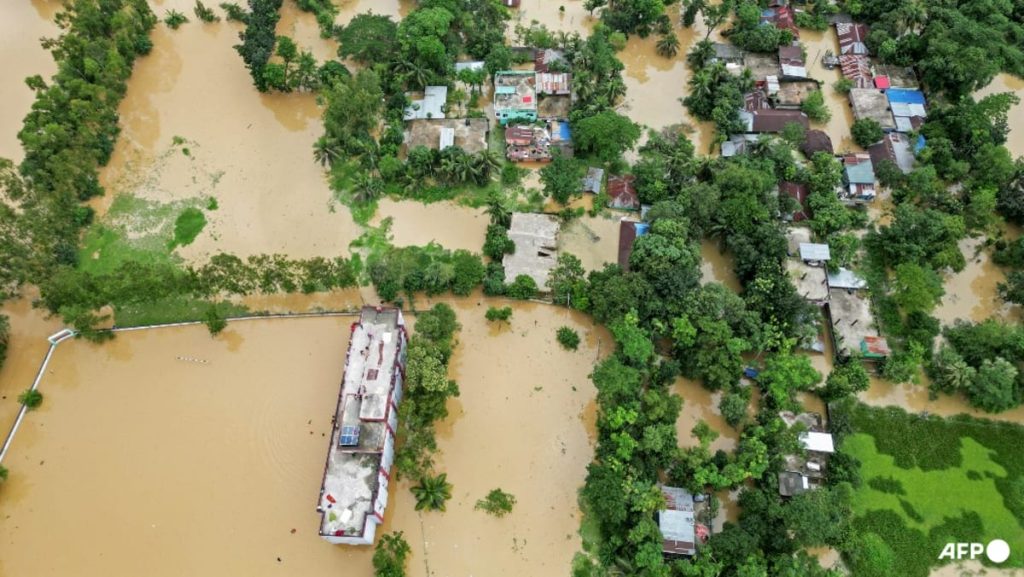Nearly 300,000 Bangladeshis were seeking refuge in emergency shelters due to floods that have inundated vast areas of the country. The flooding was caused by heavy monsoon rains and has resulted in at least 42 deaths in both Bangladesh and India. One resident, Lufton Nahar, described how her house was completely flooded, with water flowing above the roof, forcing her and her family to seek shelter in a relief facility in Feni.
Bangladesh, a nation of 170 million people, is prone to flooding due to its many rivers and low-lying geography. Monsoon rains regularly cause destruction, but climate change is exacerbating the situation by altering weather patterns and leading to more frequent extreme weather events. The recent floods have not only resulted in loss of lives but have also damaged highways and rail lines, making it difficult to access badly affected areas and disrupting business activities.
The situation in Feni, located near the border with India’s Tripura state, is particularly dire, with many residents forced to evacuate their homes by boat to escape the rising waters. Without this intervention, many believe they would not have survived. The widespread devastation caused by the floods highlights the vulnerability of Bangladesh to natural disasters and the urgent need for improved disaster preparedness and response measures.
Efforts are underway to provide relief and assistance to those affected by the floods, with the government and humanitarian organizations working together to ensure that emergency shelters are adequately equipped and that essential supplies are delivered to those in need. However, the scale of the disaster poses significant challenges, with access to flooded areas limited and transportation infrastructure severely impacted.
As climate change continues to worsen, the frequency and intensity of extreme weather events such as floods are expected to increase, posing a growing threat to vulnerable communities in Bangladesh and other low-lying regions. Urgent action is needed to address the root causes of climate change and to strengthen resilience to its impacts in order to protect lives and livelihoods in the face of these escalating challenges. The current floods serve as a stark reminder of the urgency of addressing climate change and investing in sustainable development practices to build a more resilient future for all.













